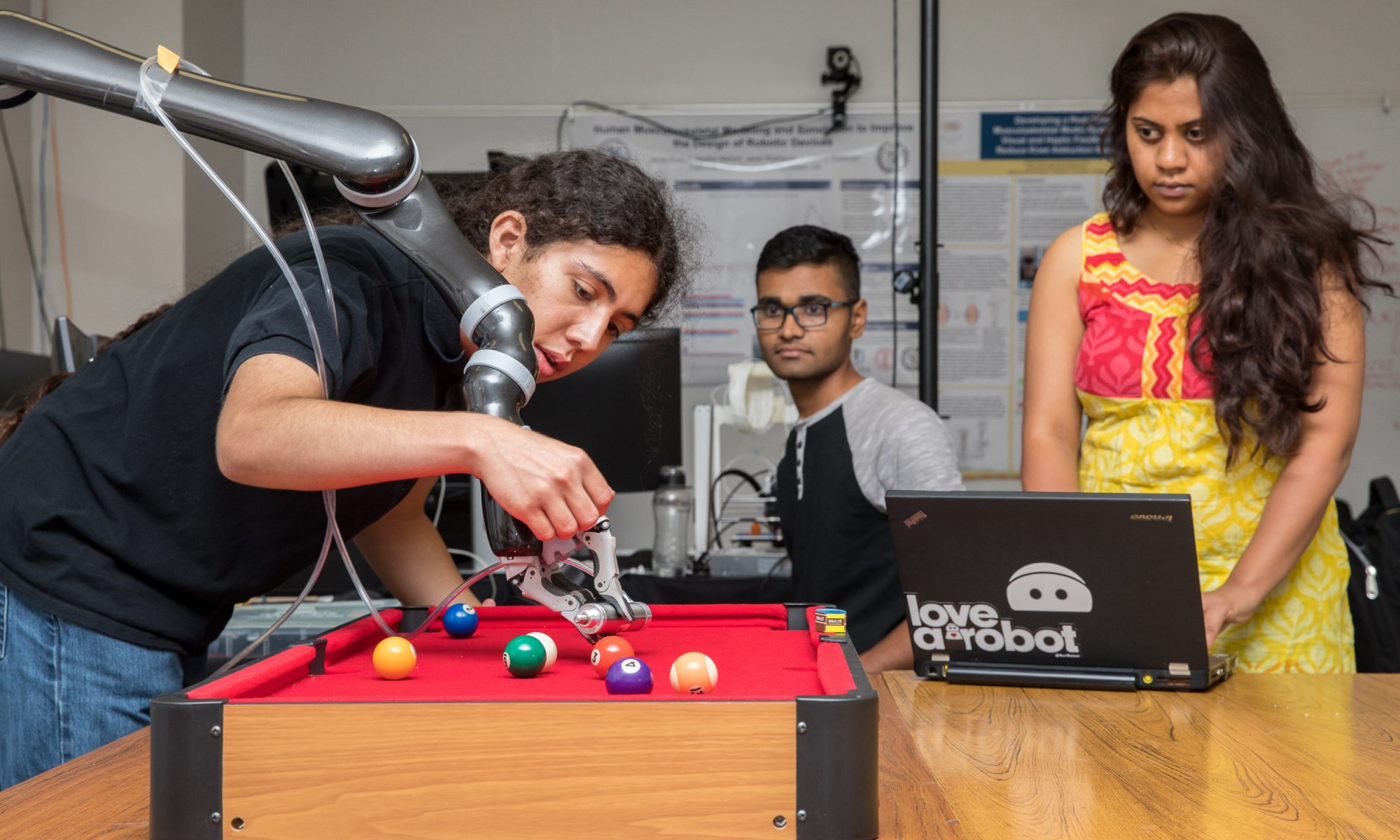 This month’s Elements of Change lecture explored how science, technology, engineering, and mathematics help improve our world. College of Engineering Dean Forouzan Golshani said science discovers the world, engineering changes the world, technology helps you carry it out, and mathematics keeps your grounded. But, he added, “In many cases, it’s engineering that drives science.”
This month’s Elements of Change lecture explored how science, technology, engineering, and mathematics help improve our world. College of Engineering Dean Forouzan Golshani said science discovers the world, engineering changes the world, technology helps you carry it out, and mathematics keeps your grounded. But, he added, “In many cases, it’s engineering that drives science.”
For speakers at the event, a popular question was how they got into the STEM fields. Often, they said, it was at the suggestion of a family member.
Chris Hernandez, now Vice President of Research, Technology and Advanced Design at Northrop Grumman Aerospace Systems, said his father, an ex-Marine, required he and his brothers to “look visitors in the eye, say it’s good to meet you, and welcome them to our home.” That ability to converse with adults helped him tremendously when a customer who worked at Rockwell International came into the diner where Hernandez worked and offered him a job.
said his older brother advised him to become an engineer when he asked him about becoming a mechanic. Rizo is now a senior thermal systems engineer at NASA’s Jet Propulsion Laboratory and a part-time instructor in the College of Engineering’s Mechanical and Aerospace Engineering Department.
Former Tulane University mechanical engineering professor Calvin Mackie also credits his brother in urging him to study engineering. Back when Mackie was an aspiring athlete, his brother frequently pestered him to use his brain, not his body. Mackie didn’t listen—at least not until a shoulder injury crushed his dreams of a football career.
Mackie tried to apply at Georgia Tech, but his SAT scores were too low. Eventually, he was admitted to Morehouse College, where he completed his degree in mathematics, then went back to Georgia Tech to earn bachelor’s and master’s degrees and a PhD in mechanical engineering.
“When I said I wanted to be an engineer, they at first told me no,” he said. “I didn’t fit the supposed profile to be an engineer.”
Growing up, Philip Janowicz resisted his chemist father encouraging him to study chemistry. Instead, he wanted to be an actor, singer, or entertainer. Ironically, science camp and a rumor that the chemistry teacher in college was “hot” steered him right back to chemistry. Janowicz is now an assistant professor of chemical education at California State University Fullerton.

